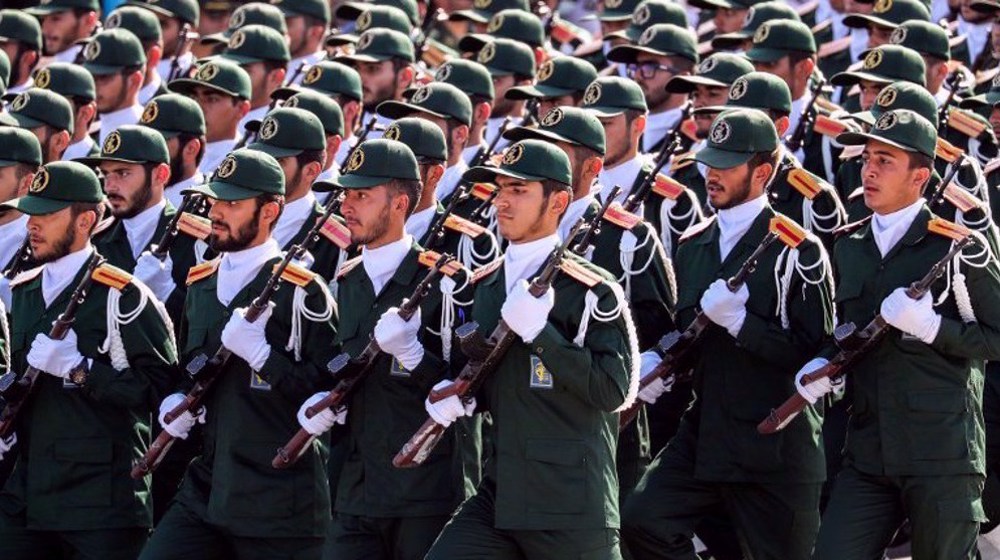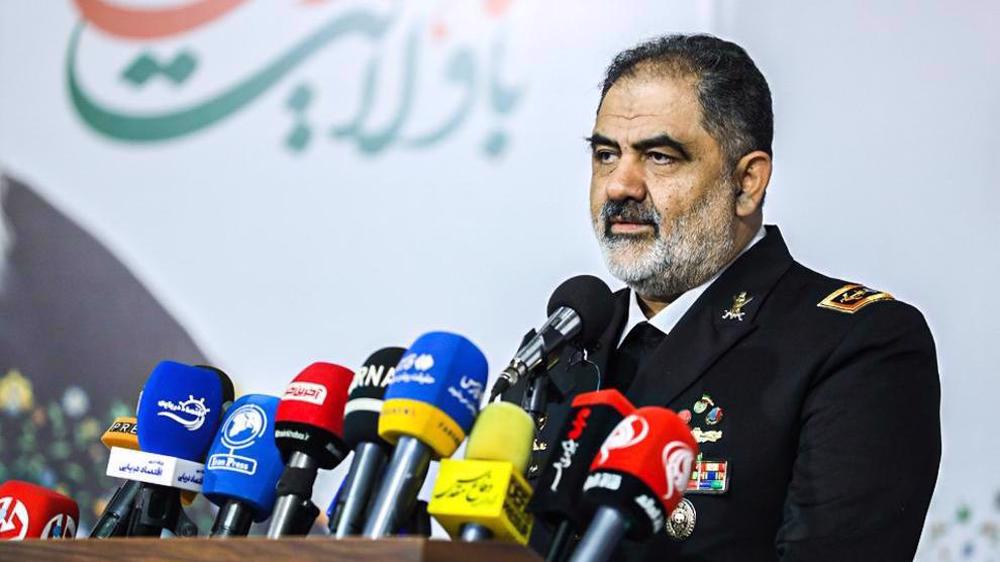Calls for negotiations on Iran's missile program 'delirious'
The recent calls by the US and some of its allies for negotiations about Iran's ballistic missile program and other defensive matters are "delirious," says a senior Iranian military spokesman.
Deputy Chief of Staff of Iran's Armed Forces Brigadier General Massoud Jazayeri said Wednesday the countries that want to discuss the Islamic Republic's deterrence power today are the same "regimes that have time and again proven their despotism and hegemony."
"Based on predetermined plans and objectives, Iran's armed forces are actively working to reinforce the country's defensive power and at a time when the enemies of the Islamic Revolution openly threaten us with military action, developing defensive measure that are deterrent and disheartening [to the enemy] will continue," the general said.

His stance was reiterated by former Iranian Defense Minister Brigadier General Hossein Dehqan in an interview that Mehr News Agency published earlier in the day.
"America, Saudi Arabia, Israel and their regional allies have been trying to limit Iran's defensive power and try to convince Europe to join them in the process and project Iran's missiles as a threat," Dehqan said, noting that "surface-to-surface and surface-to-air missiles" were high on the list of Iran's defensive priorities.
US President Donald Trump claims that Iran's development of ballistic missiles is in breach of the 2015 nuclear agreement it has struck with the P+1 group of nations -- the US, the UK, France, China, Russia and Germany -- and a UN resolution that endorses it.
Refusing to certify Iran's commitment to the landmark agreement, despite condemnations and warning from world leaders, the American head of state has been pressuring France, the UK and Germany -- all members of the European Union -- to work out a "fix" to what he calls the "significant flaws" of the deal.
Officials from the three EU countries have formed a working group with US Secretary of State Rex Tillerson to explore their options before a three month ultimatum by Trump ends in May.
Read More:
French President Emmanuel Macron said in November that he was “very concerned” by Iran’s ballistic missile program.
Tehran, however, shut down his calls by making clear that the missiles were purely defensive in nature and not up for negotiation.
Earlier this week, UK Foreign Secretary Boris Johnson said at a news conference next to his American counterpart that they were trying to find a way to address Trump's demands about Iran's missiles.
'Next to impossible' to rescue patients from Gaza's Kamal Adwan Hospital: Director
VIDEO | Vietnam current prosperity
Report blames gasoil exports for shortage at Iranian power plants
VIDEO | Hind Rajab Foundation names Israeli war criminals vacationing after Gaza genocide
VIDEO | Australians rally for Gaza ahead of Christmas festivities
VIDEO | Attacks on Sana'a
Iran reports further drop in annual inflation rate in December
Israel indicts two settlers over suspected spying for Hezbollah











 This makes it easy to access the Press TV website
This makes it easy to access the Press TV website